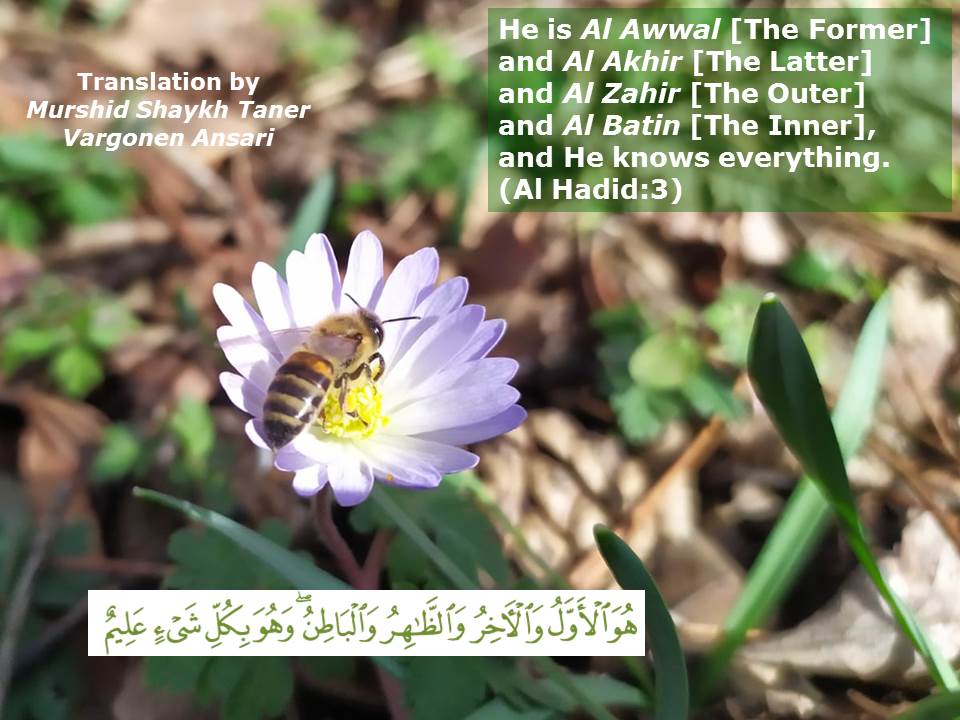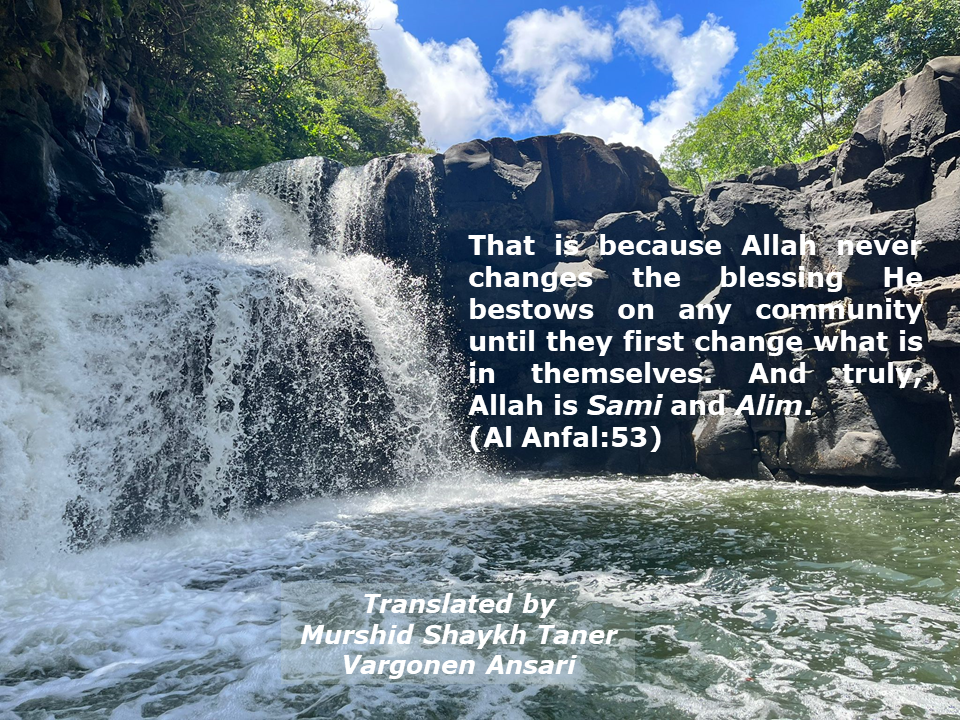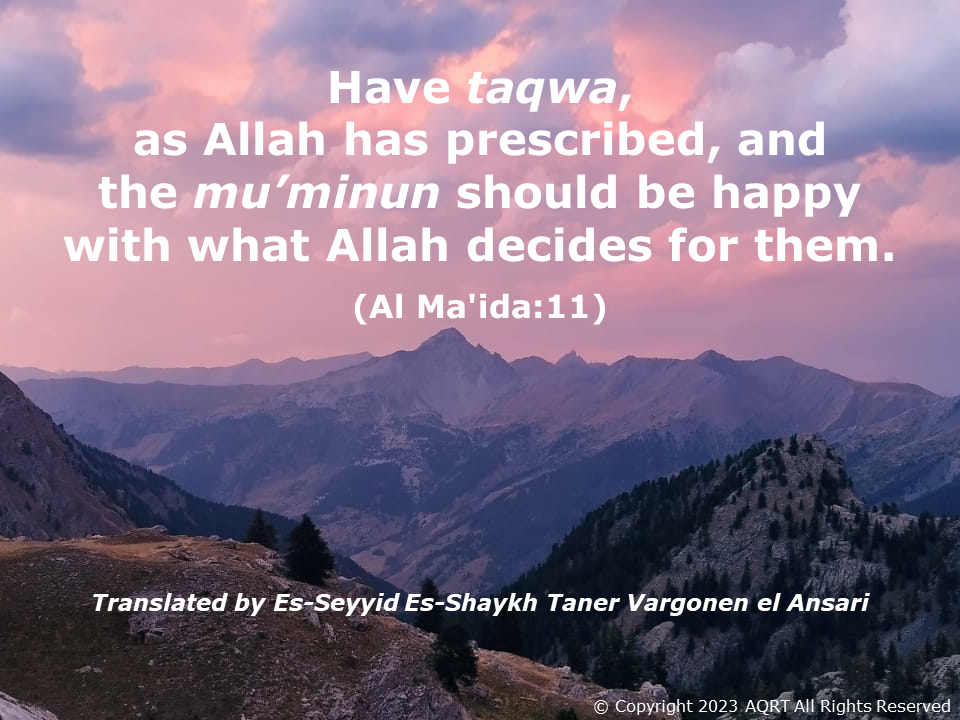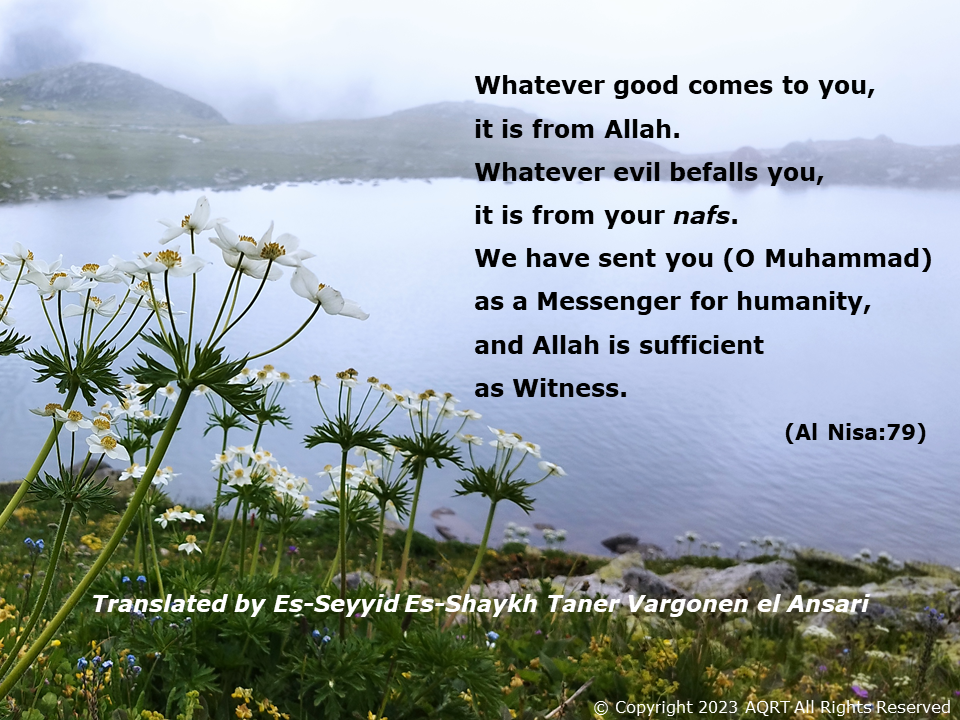All power belongs to Allah, so may Allah be praised as He deserves.
Qarabah, Closeness to Allah
Now, if you remember in Suratul-Hadid, Allah says,
“Hu wal-Awwalu wal-Akhiru wal-Zahiru wal-Batinu…“
He is Al Awwal [The Former] and Al Akhir [The Latter]
and Al Zahir [The Outer] and Al Batin [The Inner],
and He knows everything. (Al Hadid:3)
So He is the Former, He is the Latter. And we are trying to learn Allah and have closeness to Allah. Everybody is trying to have a relationship with Allah in the Hereafter. Now for Sufis, Hereafter is faraway. We want to have a relationship with Allah now. Because of this verse, we know that we can have a relationship with Allah now. So did the Prophet Muhammad (peace be upon him), he did not wait for the Hereafter. To gain closeness to Allah is in this world. So you need to learn how to get into the land of closeness with Allah in this world. This getting closeness is called Qarabah.
Now, Allah is constant…
This is an edited excerpt of the Online Saturday Sohbet given on October 31, 2009 by Murshid Shaykh Taner Vargonen Ansari and published on sufiview.com on February 22, 2021. The translation of the Qur’an verses are also from Murshid Shaykh Taner Vargonen Ansari.
More verses from the Qur’an
And to the Thamud We sent their brother Salih. He said, “O my community, connect and devote yourselves to Allah. You have no other ilah [higher power] besides Him. He brought you out of the earth and settled you in it. So seek absolution from Him, and turn to Him in repentance. And know that my Rab [Lord] is Qarib [Very Close] and Mujib [Responsive].” (Hud:61)
Say, “The truth has come, and falsehood has neither the power to originate any good, nor to reproduce it.” Say, “Should I go astray, I will only be doing so to my own loss, but if I am rightly guided, that is because of what my Rab has revealed to me. Most certainly, He is Sami [Listening and Hearing] and Qarib [Near; Connected; Related to All].” (Saba:49-50)
And We called him from the right side of the mountain, and brought him close for communication. (Maryam:52)
And the truth is, it is not your wealth or children that will bring you closer to Us, but the one who believes and does good will come closer. As for such, their reward will be doubled for what they did, and they will abide in secure and sublime dwellings. (Saba:37)
…do sajda [prostration], and approach the close quarters of Allah. (Al ‘Alaq:19)
Note about Sajda Ayat
The above verse 19 of Suratul ‘Alaq is a sajda ayat [verse of prostration]. Sajda means prostration, acknowledgement of Allah’s sovereignty. It is recommended to prostrate, as is customary, when reading this and other sajda ayats. If you are in a situation where you are unable to do the action of prostration, you may acknowledge Allah’s sovereignty by reciting:
Subhan Allah [Exalted is Allah]
Alhamdulillah [All Gratitude and Praise belong to Allah]
Allahu Akbar [Allah is Greater than Great]
and any other tasbih [repeated glorification] that comes to your heart as many times as you wish.
Do you have any questions?
Subscribe to the Aqrtsufi YouTube Channel and be notified to join our weekly interactive Live Q&A and Zikr!




